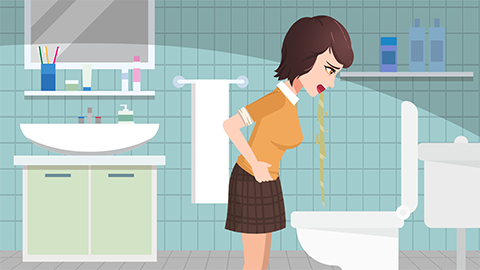What impact does drinking water have on the body in cases of heatstroke?
Effects of drinking water on the body in heatstroke generally include inducing vomiting and aspiration, increasing the burden on the heart, causing electrolyte imbalance, affecting heat dissipation efficiency, and causing water intoxication. A detailed analysis is as follows:

1. Inducing vomiting and aspiration: Patients with heatstroke often have impaired consciousness and weakened swallowing function. Drinking water at this time can easily irritate the throat and gastrointestinal tract, inducing vomiting. Vomit may enter the trachea, causing airway obstruction and endangering life.
2. Increasing the burden on the heart: Heatstroke places the body in a state of heat stress, already affecting heart function. Drinking large amounts of water rapidly increases blood volume, further burdening the heart and potentially causing arrhythmias and other problems.
3. Causing electrolyte imbalance: Patients with heatstroke lose significant amounts of sodium, potassium, and other electrolytes through heavy sweating. If only pure water is consumed, it will dilute the remaining electrolytes in the body, disrupting the balance and causing symptoms such as muscle cramps and weakness.
4. Affecting heat dissipation efficiency: Excessive water intake directs blood flow to the gastrointestinal tract for digestion, reducing skin circulation and lowering the skin's ability to dissipate heat, which is detrimental to lowering body temperature and delaying recovery from the condition.
5. Causing water intoxication: Heatstroke may impair kidney function, reducing its ability to excrete water. Drinking large amounts of water can lead to fluid retention in the body, causing water intoxication, with severe complications such as cerebral edema and increased intracranial pressure.
When encountering a patient with heatstroke, do not blindly give large amounts of water. First assess their consciousness and swallowing ability. Conscious patients may be given small amounts of fluids containing electrolytes slowly, while simultaneously initiating rapid cooling and seeking medical attention. Follow professional medical guidance throughout the process to avoid worsening the condition due to improper hydration.







